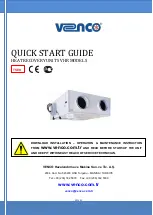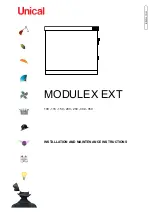
5
Step 1
After installing your light, leave the switch in the
“OFF” position and charge in
FULL, DIRECT
SUNLIGHT
for THREE FULL SUNNY DAYS.
Step 2
After allowing the battery to fully charge, the
motion detector can be adjusted and tested.
Point the motion detector head down 15° from
horizontal level.
Step 3
Move the slide switch to “TEST” position. Turn
the range knob all the way to the minimum
setting (counterclockwise). The lights will come
on for a few seconds, then turn off.
Step 4
Wait one minute for the circuit to stabilize, then
walk slowly across the detection zone. The lights
will turn on as soon as your presence is
detected. The lights will turn off in approximately
10 seconds after motion stops or you leave the
detection zone. Adjust the detector head up or
down, left or right, in small increments as
necessary. Increase the range by turning the
knob clockwise a little at a time and only if
necessary. Most applications work best at the
lower range setting.
Step 5
Place the switch to “AUTO” position. The lights
may come on for a few seconds. This is normal.
After dark, test your adjustment by walking
slowly across the detection zone. The lights will
turn on when your presence is detected and will
stay on as long there is motion in the detection
zone. The lights will turn off in approximately 90
seconds after you stop moving or leave the
detection zone. If additional adjustments are
required, it is recommended that they be made
in the test mode during the following day when
the switches are easily visible.
Note: Remember to switch to “TEST” for
daytime testing and switch back to
“AUTO” for nighttime operation. The
motion detector has a built-in photocell
sensor that prevents daytime operation
in the “AUTO” position.
TESTING INSTRUCTIONS
75 Feet
90°
INSTR_821-7000-0_SL7.qxd 5/17/06 4:29 PM Page 6






























